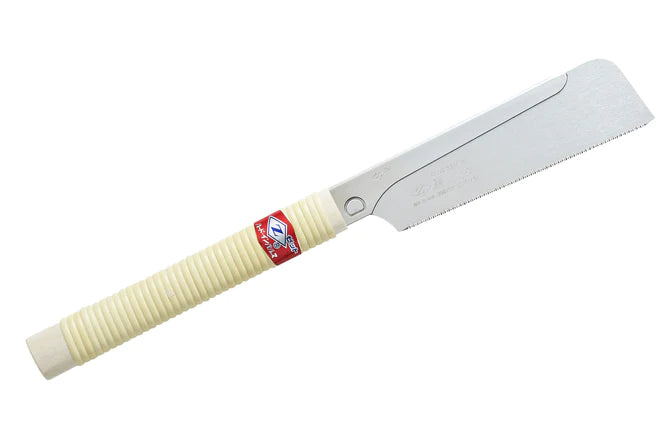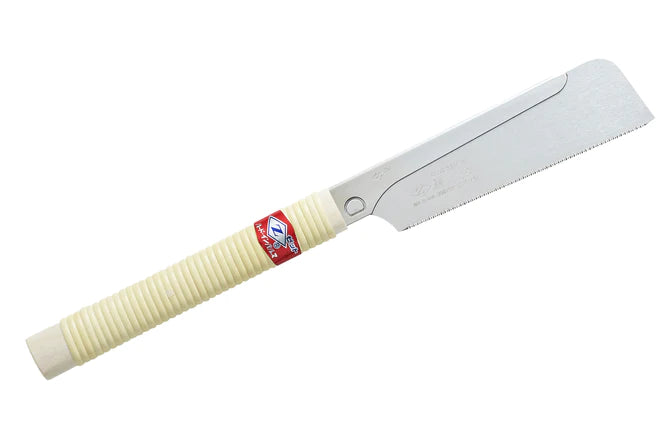1
/
of
1
Z-Saw
Z Saw Dozuki Hardwood Saw
Z Saw Dozuki Hardwood Saw
SKU: 110/7105
Regular price
$29.99
Regular price
Sale price
$29.99
Unit price
/
per
Shipping calculated at checkout.
Couldn't load pickup availability
ZetSaw (Z-saw for short) produces 2 versions of their popular Dozuki saw: Hardwood and Fine. Each saw has different tooth patterns. Hardwood saws have 21 TPI and are designed to cut harder woods like oak, walnut and cherry and can rip, crosscut or cut angles equally well. Hardwood saws are ideal for cutting dovetails and tenons. Fine saws have 25 TPI and are designed to cut pine, cedar and fir and are best for crosscutting. Fine saws are ideal for extremely intricate and precise cutting. Both Hardwood and Fine saws come with either 150 mm (5.9") or 240 mm (9.44") blades.
Specifications:
Hardwood 150 mm /5.9"
- Overall length: 372mm/14-5/8"
- Blade length: 150 mm/5.9"
- Blade thickness: 0.3mm/0.011"
- Kerf: 0.4mm/0.015"
- Blade depth: 38mm/1-1/2"
- Maximum depth of cut: 38mm/1-1/2"
- Pitch/TPI: 1.2mm/21 TPI
- Traditional rattan cane wrapped wood handle
- Replacement blade sold separately: 07106
Hardwood 240 mm/9.44"
- Overall length: 535mm/21-1/16"
- Blade length: 240 mm/9.44"
- Blade thickness: 0.3mm/0.011"
- Kerf: 0.4mm/0.015"
- Blade depth: 50mm/1-15/16"
- Maximum depth of cut: 1-15/16"
- Pitch/TPI: 1.2mm/21 TPI
- Traditional rattan cane wrapped wood handle
- Replacement blade sold separately: 07124
- The primary difference between Japanese saws and western-style saws is that Japanese saws cut on the pull stroke. Pulling a saw blade through wood keeps the blade in constant tension preventing the blade from bowing allowing the blade to be much thinner. Thinner blades cut faster with less effort, make less sawdust and produce a much finer cut. Japanese saws have less set (offset of the teeth) providing much better control when following a line. Japanese saw teeth are impulse hardened greatly prolonging the life of the saw. Impulse hardening heats the cutting edge of each tooth via electrical current hardening just the surface of the tooth leaving the core flexible and less susceptible to breaking. Impulse hardened teeth will remain sharp much longer than conventional western handsaws. Most Japanese saws cannot be sharpened, but replacement blades are available. Japanese saw blades receive a special micro-thin electroplated surface treatment that minimizes friction, reduces tarnishing and rusting and increasing durability.
Share




